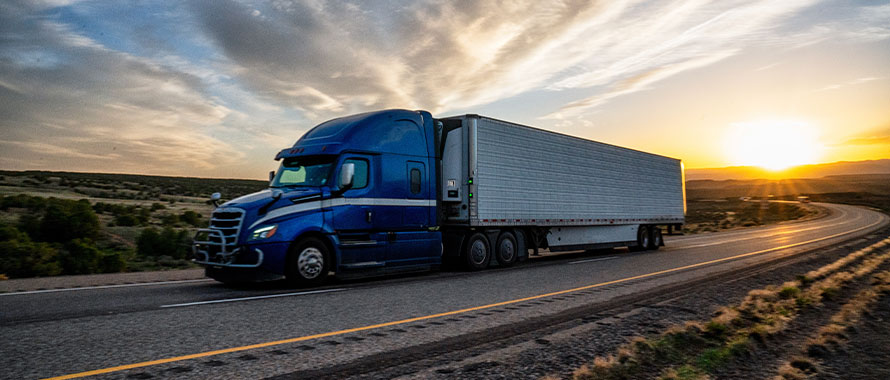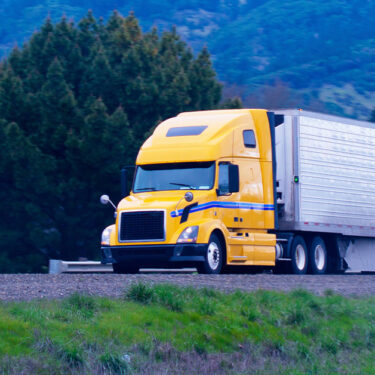Inside This Article:
- Cargo theft surged 27% between 2023 and 2024—which regions were hit hardest.
- The high-value and everyday goods criminals are targeting in record numbers.
- The rise of strategic cargo theft—how criminals use fake identities and deception to steal entire shipments.
- Why Motor Truck Cargo Insurance is more critical than ever for shippers and carriers.
- Smarter security strategies and insurance solutions that can help transportation companies reduce their risk.
Cargo theft activity in the U.S. and Canada reached a record high in 2024, with incident frequency increasing 27% from 2023 to a total of 3,625 cargo thefts last year. The data comes from analytics firm CargoNet, which found that cargo theft activity during each quarter of 2024 surpassed previous records set in 2023, Insurance Journal reported.
The cost of these losses is also on the rise; the estimated average value of stolen cargo per incident rose from $187,895 in 2023 to $202,364 in 2024, for a total of $454.9 million, according to the data.
“Cargo theft is a huge issue,” said Gene’ Cain, Broker, Transportation, Burns & Wilcox Brokerage, Atlanta, Georgia. “It hits them financially — not only for the load that is stolen, but now the shipper may not want to do business with that trucking company anymore because of their safety record.”
Companies buy insurance to protect against the unforeseen, the unexpected. Motor Truck Cargo Insurance covers the goods of others in your care, custody and control while it is being transported.
Cargo thefts surged 39% in Texas and 33% in California, with these two states, plus Illinois, accounting for 46% of all cargo theft incidents during 2024, Risk & Insurance reported. The trend underscores the importance of Motor Truck Cargo Insurance for transportation companies hauling others’ goods.
“Companies buy insurance to protect against the unforeseen,” said Fernando Batista, Manager, Transportation, Burns & Wilcox, Toronto, Ontario. “Motor Truck Cargo Insurance covers the goods of others in your care, custody and control while it is being transported.”
Theft of consumable goods on the rise
According to the data from CargoNet, commodities most targeted during 2024 included raw and finished copper products, consumer electronics and cryptocurrency mining hardware. Consumable goods were also targeted, such as avocados, nuts, cosmetics, vitamins and supplements.
Earlier in 2024, a logistics brokerage in Texas told FreightWaves that a load of avocados and the tractor-trailer vanished “without a trace.” The incident was the second time that year the brokerage had dealt with strategic cargo theft, costing more than $200,000 in out-of-pocket expenses. Just this month, 100,000 eggs were stolen from a trailer in Pennsylvania amid a nationwide egg shortage, The Guardian reported Feb. 6.
Transportation companies should make sure they have adequate limits for the goods that they are carrying.
“My observation over the last 20 years has been that cargo theft is directly tied to the economy,” Batista said. “In 2020, what we thought were targeted commodities like electronics and alcohol shifted to hand sanitizer and Lysol wipes due to COVID. That was a direct result of supply versus demand. If you fast-forward to where we are today with inflation, interest rates and unemployment, it is no surprise that consumable goods are being targeted.”
Strategic cargo theft, which often involves criminals using stolen identities to pick up shipments and steal them, also rose in 2024, according to FreightWaves. The risk of “fictitious identification and drivers not being conscientious that they are delivering to the correct individual” continues to rise, Cain said. “Transportation companies should make sure they have adequate limits for the goods that they are carrying.”
How insurance may cover cargo theft
In the U.S., some metro areas have seen an uptick in cargo theft in recent months, including Memphis, Chicago and Atlanta, according to a Jan. 28 Truckers News report. December also saw a 13% increase in last-mile courier incidents and deceptive pickups, the outlet reported. In Canada, more than $531 million in cargo and equipment has been stolen since 2019 in hot spots like Mississauga, Brampton, Vaughan, Toronto, and Montreal.
“A lot of theft occurs at the ports,” Cain pointed out. “Savannah, Miami, Newark, LA — those are big hot spots (in the U.S.)” “Both carriers and shippers should make sure that they have adequate coverage.”
Others involved in cargo shipments may need their own policy to cover theft, including Load Brokers Liability and Freight Forwarders Errors & Omissions (E&O) Insurance for freight brokers and Shippers Interest Insurance for shippers. “If shippers want added peace of mind, they can purchase that policy, so they are no longer only relying on the carrier’s coverage,” Batista said.
A lot of [cargo] theft occurs at the ports. Savannah, Miami, Newark, LA — those are big hot spots.
Other important Transportation Insurance policies include Truckers Auto Liability Insurance, which can cover third-party bodily injuries and property damage, and Auto Physical Damage Insurance, which could be triggered if the truck is stolen or damaged during a theft. Cyber & Privacy Liability Insurance is also important for transportation companies, which could be targeted in cyberattacks.
“A growing risk is cyber theft and social engineering,” Cain said. “Hackers could access trucking companies’ data and start directing vehicles to go elsewhere.”
Advanced security systems recommended
In addition to purchasing Motor Truck Cargo Insurance, trucking companies should operate with the best security practices in place, Batista and Cain agreed. This includes advanced tracking technology and satellite-based systems that provide real-time updates on the location of shipments.
“Everybody is under greater scrutiny,” Batista said. “Anything you can provide to the insurance company about your safety protocols can help you obtain better rates or better coverage.”
Companies must mind the basics like strict policies on checking driver identification and plate numbers before checking out a shipment. “Implementing new technology can be expensive, and with many companies already being stretched so thin and insurance rates going up, it is a delicate balance,” he said. “They should look at what they can do that will have the most impact.”
I do not see these statistics going in the other direction sharply anytime soon. All you can do is try to improve your protocols, reduce the risk and be aware if what you are hauling is in high demand.

Secure parking and storage facilities are critical. “Having places in major cities where truck drivers can safely park … can also help reduce theft,” Cain explained. “Another key factor is that drivers need to be trained on the type of commodities they are hauling.”
Awareness of the cargo theft surge is an important first step, Batista added. “I do not see these statistics going in the other direction sharply anytime soon,” he said. “All you can do is try to improve your protocols, reduce the risk and be aware if what you are hauling is in high demand.”
These thefts are not only costly; “lives can be endangered, too — we have heard about drivers being hijacked,” he said. “Everyone thinks it is a victimless crime, but really it is not; the costs get passed down to consumers.”






